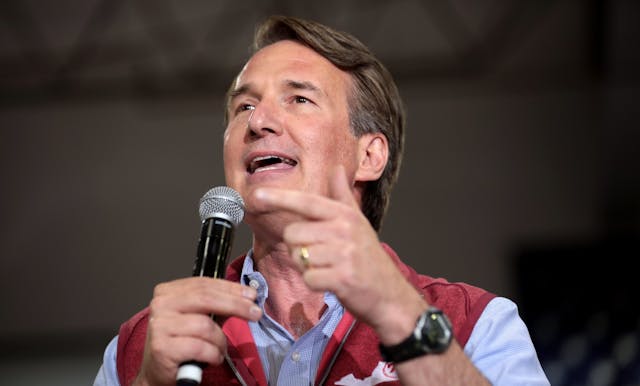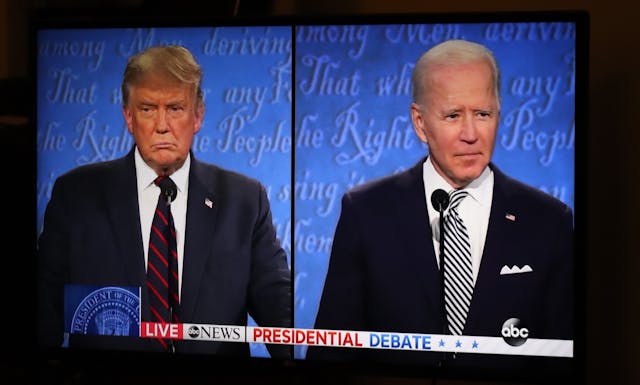A Brief History of Veterans Affairs: WWII to Present

If it hadn't been for how well World War II veterans were initially treated, no one would be phased by the current VA debacle.
Unlike all prior wars, WWII veterans had some of the finest services available after the close of the war -- including the GI Bill and low-cost home loans. Those paying the ultimate price left behind a $10,000 insurance payout from the government. When considering that a small house cost less than $5,000 at the end of WWII, this was a considerable amount of money (an unmarried private in WWII made just shy of $500 per year).
This was truly America's finest hour when it came to treating veterans (even ones who were largely volunteers) with favor, dignity, and respect. But in turn, it became the "gold standard" of how veterans ought to be treated.
The Korean War scaled back almost all of these benefits -- especially the GI Bill -- to the point where many of them were useless in the reconditioned form. Another round of veterans returning increasingly taxed the already large VA system and more hospitals and centers were built.Avoiding all of the political fighting and rhetoric of Vietnam that could fill a large book, Vietnam had one distinct difference from all previous wars. Less soldiers died in combat (both numbers and percentages), leaving far more wounded and disabled veterans in the VA system -- due to advancements in combat training, air lifts, and medicine.
The wars in the Middle East brought even more new lifelong disabilities. Traumatic brain injuries, caused by being too close to explosions, have been a significant and largely untreatable neurological condition of many returning veterans.
In the first time since the close of WWII, troops have been ordered to multiple tours of duty in the Middle East -- adding mental, PTSD, and family troubles into the growing list of physical and mental disabilities.
A large influx of veterans now require lifelong services for the disabilities that they had received in combat. Allocating vital resources is probably what bureaucracies do worst -- and the modern VA is definitely no exception.
Right before Memorial Day, Senator Burr (R-N.C.) sent a scathing letter to the heads of each major veterans group demanding that they denounce the current leadership. Not only did this backfire, but became a major political embarrassment to Congress at large from the responses of the major organizations.
In his "Open Letter to America's Veterans," Sen. Burr criticized the VSOs (veteran's service organizations) for being part of the problem -- for not being more politically active in demanding better services. In short, he claimed that the independent VSOs have become too politicized and no longer represent the organizations:
I believe the national and local commanders of every VSO have the interests of their members at heart, and take seriously their commitment to their members and their organization. Unfortunately, I no longer believe that to be the case within the Washington executive staff of the VSOs that testified. Last week’s hearing made it clear to me that the staff has ignored the constant VA problems expressed by their members and is more interested in their own livelihoods and Washington connections than they are to the needs of their own members.
The commander-in-chief of the VFW responded in probably the best way he could -- by showing that the VFW had testified before Congress (including Sen. Burr) for the past 10 years on these issues that are currently fueling the scandal -- largely to deaf ears:
Each year our organizations build an analysis of VA benefits and services known as the Independent Budget, and each year since 2005 the Independent Budget has warned Congress about the dangers of long wait times and care rationing due to improper resources, oversight and accountability. Last year, and again this year, then-VFW Commander-in-Chief John Hamilton and I warned you and both the House and Senate Veterans Affairs committees about the dangers of long wait times. This decade of stern warnings has fallen on deaf ears.
These are problems that have been out in the open -- why does no one in Congress pay attention? The answer, at least partially, lies in veterans as a voting bloc.
Research consistently shows that the military and veteran vote is not a cohesive voting bloc. In fact, according to one long-time pollster, issues like party affiliation, religion, and personal ideology tend to have more of an impact on veteran voting practices than specific issues.
Neither side can firmly claim the veteran vote. Because of this, both sides are trying to offer everything they can to gain support. More is typically less when it comes to government programs -- only so many programs can be done so well.In short, there is no one action that either side could offer that would magically appease the veteran/military voting bloc. Politicians without an answer are the worst of their kind and usually resort to finger pointing as a last resort.
One sad reality is that as time goes on, the veteran population in our country (short of a major war) will continue to shrink. While the VA struggled to open enough hospitals after WWII, the new struggle will be keeping enough open to adequately serve the dwindling population of veterans.
The Veteran's Administration is lost in the shuffle of national politics. Each side uses its successes and failures for ammunition for their cause, yet the constant political infighting -- as well as changes in leadership with each presidency -- creates instability in the entire system.
While certainly politically debatable, two of the best functioning agencies in the federal government are the Federal Reserve and the Social Security Administration -- both quasi-government administrations. While both agencies definitely have their political adversaries (as well as problems), they tend to complete their tasks with relatively good efficiency -- both processing millions of transactions each day.
Perhaps the answer is the formation of a quasi-government organization to overcome the political infighting and bureaucracy that have plagued the VA.



